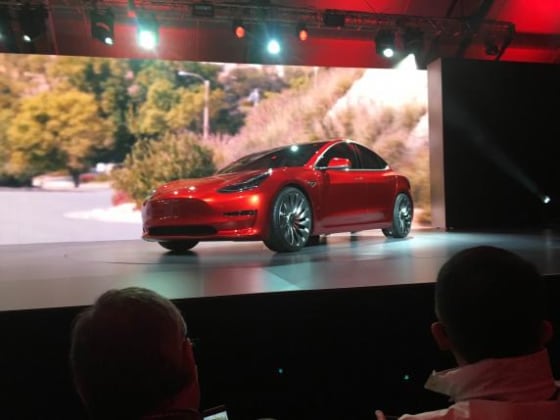Tesla founder Elon Musk has hit out at Fortune again, calling a report by the storied magazine about a fatality involving one of its cars "fundamentally incorrect."
Fresh from calling the Fortune report "BS" in a tweet on Tuesday, billionaire Musk on Wednesday tweeted a link to blog post by the Tesla team on the issue, calling it a response to the "misleading Fortune articles about Autopilot."
In a blog post titled Misfortune, Telsa gave more details about the interactions it had with Fortune before the magazine published a story on July 5 about a fatal accident that involved the use of Tesla's new autopilot function.
The electric vehicle-maker claimed Fortune contacted it for a comment on the story during the July 4 public holiday, asked Tesla no questions about the timeline of accident, refused to give Tesla a day to confirm facts and instead "rushed its story to print."
"The bottom line is that Fortune jumped the gun on a story before they had the facts," Tesla said in the blog post.
The Fortune report claimed the company and Musk made combined $2 billion by selling stock on May 18 in a public offering without disclosing the May 7 crash, which the company and founder knew about at the time.
The report, written by high-profile journalist Carol Loomis, who also edits famed investor Warren Buffett's annual letter to investors, said that a Tesla driver named Joshua Brown died in a Florida accident involving his Model S, and that his car was on autopilot at the time.
Loomis wrote that although Tesla informed the National Highway Traffic Safety Administration (NHTSA) about the accident, it did not disclose the crash involving autopilot when Musk and Tesla sold stock on May 18.
The NHTSA revealed on June 30 that the crash had occurred.
Read More From CNBC: Highway Patrol Found DVD Player in Wreckage of Fatal Tesla Accident
"To put things baldly, Tesla and Musk did not disclose the very material fact that a man had died while using an auto-pilot technology that Tesla had marketed vigorously as safe and important to its customers," Loomis wrote, adding that Musk told her in an email that the crash was "not material to the value of Tesla."
Loomis claimed that the fact the crash was material was "mildly suggested" by the fall in Tesla's stock on the morning of July 1, after the NHTSA disclosure. Tesla later closed up almost 2 percent at $216.50.
Fortune followed up with a second report on July 6 by Stephen Gandel, in which it pointed out that Tesla had said in an May 10 Securities and Exchange Commission Form 10-Q filing that it could be the subject of product liability claims, including if its vehicles' performance resulted in personal injury or death, or if there were misuse or failures of the new technologies it was pioneering.
Gandel write that this filing showed that Tesla did, in fact, believe a crash such as Brown's was material.
Form Q-10s are quarterly reports of a company's performance that all publicly traded companies are required to submit to the SEC.
The NHTSA is investigating the May 7 crash involving Brown, as well as a July 1 non-fatal crash in Pennsylvania involving a Tesla Model X, to see whether autopilot was functioning at the time of the second accident, Reuters reported on Tuesday.
Autopilot is a "semi-autonomous technology that helps drivers steer and stay in lanes," according to Reuters, which added that the autopilot function was still in test mode.
Tesla has said that drivers should keep their hands on the wheel, even while the car was partially controlling its own movements.
In the Wednesday blog post, Tesla wrote that the damage sustained by Brown's Model S made it difficult for the company to recover data from the care remotely. It was not until May 18 that a Tesla investigator was able to go to Florida to inspect the car and crash site, and Tesla did not complete its own investigation into the accident until the last week of May, the company said.
"To be clear, this accident was the result of a semi-tractor trailer crossing both lanes of a divided highway in front of an oncoming car. Whether driven under manual or assisted mode, this presented a challenging and unexpected emergency braking scenario for the driver to respond to," Tesla wrote.
"In the moments leading up to the collision, there is no evidence to suggest that Autopilot was not operating as designed and as described to users: specifically, as a driver assistance system that maintains a vehicle's position in lane and adjusts the vehicle's speed to match surrounding traffic."
In an apparent reference to Fortune's second story, Tesla accused the magazine of "plucking boilerplate language from SEC filings that have no bearing on what happened."
It also said that the fact Tesla stock ended July 1 up, not down, confirmed that investors understood that the information was not material. Tesla has not received a product liability claim in relation to the Florida crash, the company said.
Tesla stock closed 0.2 percent higher on Wednesday at $214.44 per share.
Fortune did not immediately respond to a request for comment on the issue.
